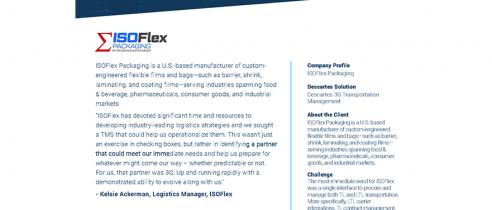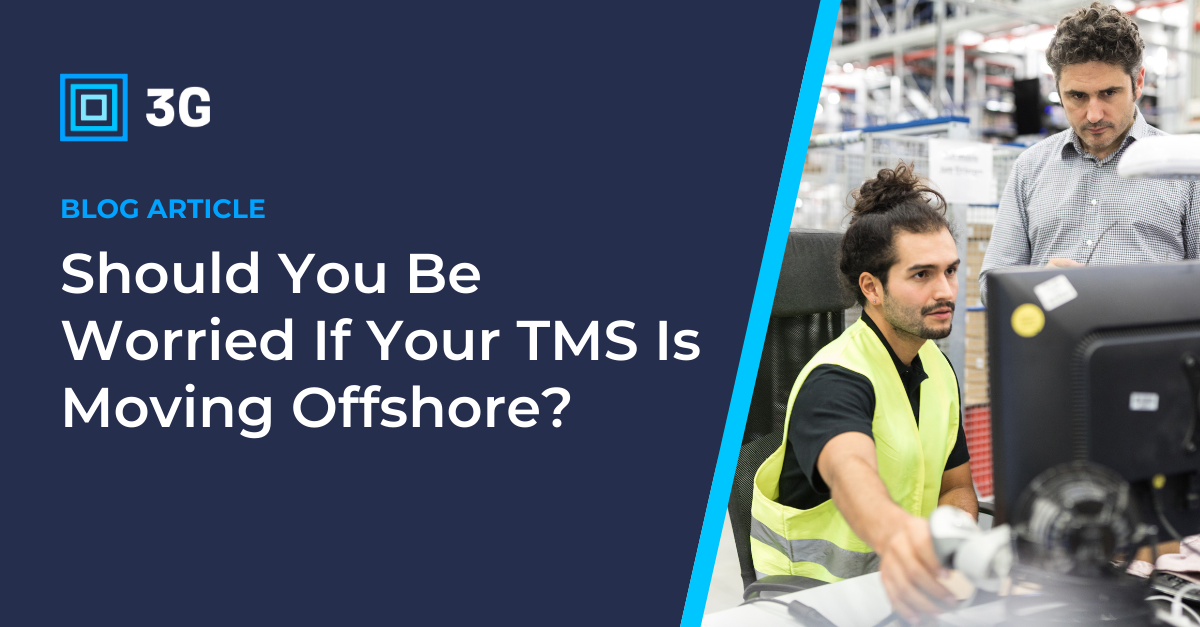You may know your transportation management system (TMS) inside and out now, but if the company and platform move overseas, things could change quickly.
When your TMS provider moves offshore, it raises critical concerns about stability, support, security, and service reliability — in other words, all the essential elements for seamless logistics operations. These shifts can disrupt your shipping processes and increase operational risks if not addressed proactively.
If you’ve already dealt with changes stemming from TMS acquisitions, you know how disruptive they can be. Moving offshore is no different. In fact, some of the same warning signs apply. If you want to prepare for potential disruptions, understanding these signs is the first step.
Key Signs Your TMS Provider May Be Offshoring
If your TMS provider is shifting operations offshore, you may notice changes that impact your logistics. While these signs aren’t definitive, they’re worth considering as part of your evaluation.
- Your provider is harder to reach. Delayed responses or mismatched support hours due to new time zones.
- You’re experiencing more frequent miscommunications. Increased miscommunications or overlooked details, particularly with critical tasks.
- Your provider is experiencing high turnover. High staff turnover disrupts relationships with key contacts, such as account managers or support specialists.
- You see changes in the product development and update cycle. Slower updates or feature releases, signaling resource challenges or shifting priorities.
If these challenges sound familiar, it might be time to evaluate if your TMS provider is still meeting your needs. For guidance, explore our blog on the five signs it’s time to look for a new TMS provider.
The Risks of Your TMS Moving Offshore
An offshore move can introduce challenges that could affect your operations and bottom line. Here’s how these risks compare to what you might experience with a U.S.-based TMS provider.
Innovation and Performance
A U.S.-based TMS provider is uniquely equipped to meet the needs of U.S. shippers, 3PLs, and brokers, offering tailored innovations that align with domestic market demands and regulatory requirements. Strong local partnerships and expertise translate into seamless carrier integrations, flexible solutions, and faster feature rollouts.
Conversely, a non-U.S.-based provider may struggle to adapt to U.S. market conditions, resulting in slower innovation cycles and less relevant solutions for your needs.
At 3G, we’ve seen firsthand how maintaining close partnerships with U.S. shippers, 3PLs, and brokers enables us to deliver faster innovation and unrivaled customer support. Our team works directly with you to resolve issues, ensuring your operations never miss a beat.
Cross-Border Data Handling and Security
Sixty percent of supply chain organizations consider cybersecurity a major risk, and for good reason. Logistics relies on sensitive data like shipment details and customer information. Mishandling this data could result in costly fines and damage to your brand.
The U.S. also enforces specific data security regulations that offshore providers may not fully understand, increasing the risk of non-compliance. Working with a U.S.-based TMS provider ensures adherence to these standards and gives you peace of mind.
Service Quality and Customer Support in Different Time Zones
When your TMS provider enters a new time zone, so do you. This could impact your provider’s availability during your company’s working hours, and issues that need immediate resolution could remain unaddressed for hours, leading to costly delays and frustrations.
Language barriers can make communication difficult, too. A support team with a different primary language might miss nuances, especially industry-specific terms and U.S. transportation practices.
When every minute counts in logistics, a responsive, U.S.-based support team ensures faster resolutions and a smoother experience.
Smart Transitions and Proactive Strategies
If your TMS provider is moving offshore—or you suspect they might soon—it’s time to ask critical questions about how this change will affect your operations. Not sure where to start? Reflect on your current experience and how recent changes—like acquisitions—may have impacted your provider. Learn more about how TMS acquisitions can change your experience.
If you’re not satisfied with their answers, consider exploring a more reliable, U.S.-based provider.
Discover how 3G’s Flexible TMS solutions can help your business thrive with agile innovation, robust security, and unmatched customer support. Explore our Flexible TMS Solution today.








